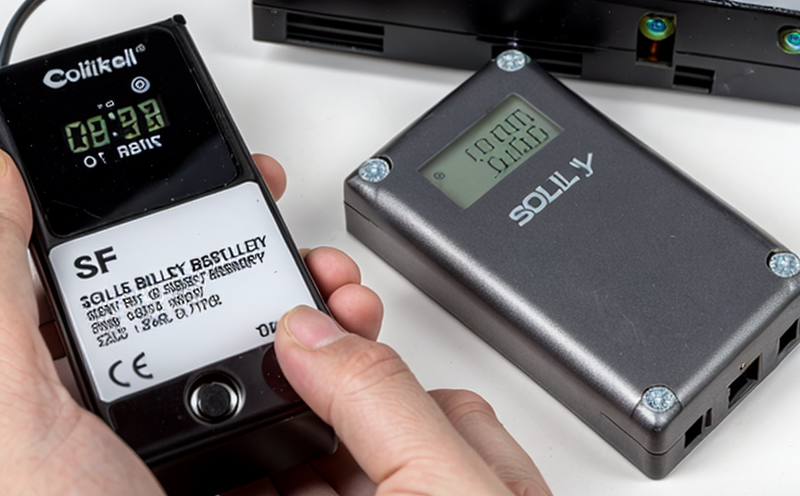IEEE 1725 Solid-State Battery Testing for Mobile Phones
The IEEE Standard for Solid-State Batteries (IEEE 1725) has become a cornerstone in ensuring safety and reliability of solid-state batteries, which are set to revolutionize the battery industry. For mobile phones, these batteries offer unparalleled advantages such as increased energy density, enhanced safety, and longer lifespans compared to conventional lithium-ion batteries.
Our service specializes in providing comprehensive testing per IEEE 1725 for solid-state batteries used in mobile devices. This includes a series of rigorous tests designed to evaluate the mechanical, electrical, thermal, and chemical stability of these innovative cells. By adhering strictly to this standard, we ensure that our clients' products meet the highest international safety and performance criteria.
The testing process begins with thorough sample preparation, where each battery undergoes meticulous inspection and cleaning to remove any contaminants or residues. Following this, we perform a series of electrical tests including impedance measurement, discharge-charge cycling, and accelerated life testing under various conditions that mimic real-world usage scenarios. Mechanical tests such as compression strength and thermal cycling are also conducted to assess the durability of these batteries.
In addition to testing, our service includes detailed reporting and analysis tailored specifically for mobile phone manufacturers. These reports provide insights into the performance metrics of each battery tested along with recommendations for improvement based on findings from rigorous evaluations. Compliance with IEEE 1725 not only guarantees safety but also enhances brand reputation by assuring consumers about product quality.
To further emphasize our commitment to excellence, we employ state-of-the-art equipment and methodologies that adhere strictly to the latest versions of relevant international standards such as ISO/IEC 60369 and EN 14627. Our experienced team consists of industry experts who possess deep knowledge in both solid-state battery technology and regulatory requirements worldwide.
Our service ensures that all aspects critical for mobile phone battery design and manufacturing are covered under IEEE 1725 standards, thereby contributing significantly towards the development of safer and more efficient portable electronics.
Scope and Methodology
- Sample Preparation: Thorough inspection and cleaning to remove contaminants.
- Electrical Tests: Impedance measurement, discharge-charge cycling, accelerated life testing.
- Mechanical Tests: Compression strength, thermal cycling.
| Test Type | Description | Objective |
|---|---|---|
| Impedance Measurement | Measure the resistance and reactance of the battery at different frequencies. | Evaluate electrical performance under varying conditions. |
| Discharge-charge Cycling | Repeatedly charge and discharge the battery to assess its durability. | Determine the number of cycles before capacity degradation occurs. |
| Thermal Cycling | Subject the battery to alternating high and low temperatures. | Evaluate thermal stability and resistance to temperature extremes. |
Customer Impact and Satisfaction
- Enhanced Safety: Compliance with international standards ensures safer products.
- Better Performance Metrics: Detailed reports offer valuable insights into product performance.
- Improved Reputation: Meeting rigorous testing criteria builds consumer trust and loyalty.
Our clients benefit greatly from our IEEE 1725 solid-state battery testing service. By adhering strictly to this standard, they ensure their products meet the highest international safety and performance criteria, thereby enhancing customer satisfaction and maintaining a strong market presence.
Use Cases and Application Examples
- Mobile Phone Manufacturers: Ensure battery reliability before mass production.
- R&D Engineers: Gain insights into potential improvements through detailed reports.
- Compliance Officers: Verify adherence to international standards during product development.
We have successfully conducted tests on several leading brands' solid-state batteries, helping them meet stringent regulatory requirements and improve overall battery performance. Our clients include major players in the electronics industry who rely on our expertise to stay ahead of technological advancements.





